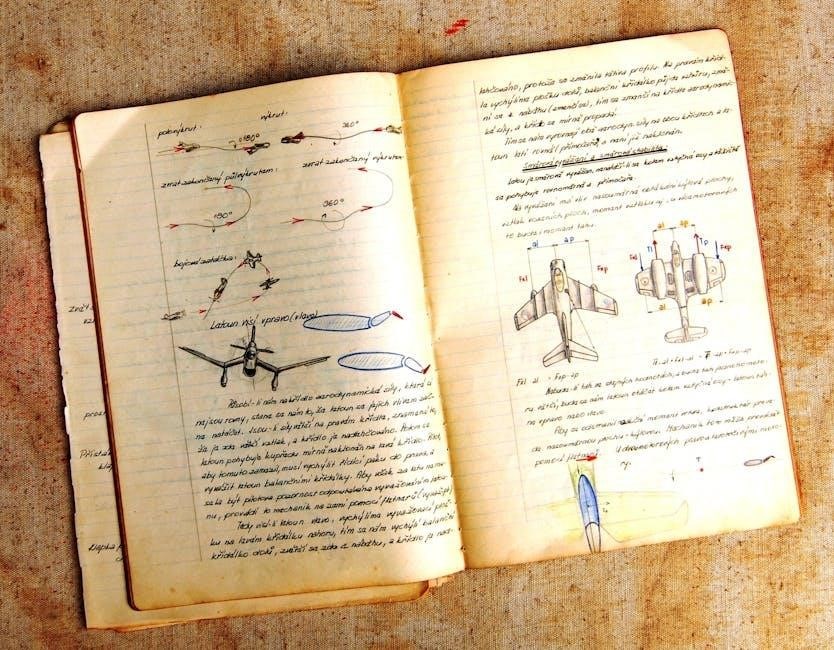
-
By:
- ophelia
- No comment
intelligen manual
What is an Intelligent Manual System?
Intelligent manuals represent a revolutionary shift in documentation, combining AI-driven technologies with traditional guides to enhance efficiency and accuracy in industrial and operational processes.
They integrate advanced features like real-time data analysis, interactive interfaces, and automated decision-making, transforming static documents into dynamic, adaptive tools for modern industries.
An intelligent manual system is a cutting-edge solution that integrates AI, data analytics, and interactive technologies to revolutionize traditional documentation processes. It transforms static manuals into dynamic, adaptive tools capable of providing real-time guidance and decision-making support. By leveraging advanced algorithms, these systems enable instant access to critical information, streamline operational workflows, and enhance user efficiency. They are designed to learn from user interactions, offering personalized insights and improving over time. This innovative approach ensures that intelligent manuals are not just repositories of information but active partners in achieving operational excellence and driving smarter outcomes across industries.
Importance of Intelligent Manuals in Modern Industries
Intelligent manuals are vital for modern industries, offering real-time insights and streamlining complex operations. By integrating AI and data analytics, they enhance decision-making, reduce errors, and improve operational efficiency. These systems empower industries to adapt quickly to changing demands, ensuring compliance and safety standards are met. Their ability to provide instant access to critical information makes them indispensable in sectors like healthcare and manufacturing. The shift from manual tasks to intelligent systems not only boosts productivity but also fosters innovation, enabling industries to stay competitive in a rapidly evolving landscape. Their role in driving accuracy and scalability underscores their essential value in modern workflows.

Key Concepts of Intelligent Manuals
Intelligent manuals leverage ontology-based systems, AI-powered solutions, and automation to streamline operations and enhance decision-making, ensuring efficient and accurate industrial processes through advanced technological integration.
Ontology-Based Intelligent Interactive Electronic Technology Manual (OIIETM)
OIIETM is a cutting-edge system that organizes and retrieves technical information dynamically, leveraging ontologies to structure knowledge into categories and relationships for efficient access and understanding.
By integrating AI and interactive features, OIIETM enables real-time data analysis, automated updates, and personalized guidance, enhancing operational efficiency and reducing human error in complex industrial environments.
Its adaptive nature ensures relevance across diverse domains, making it a cornerstone for modern industries seeking intelligent, scalable solutions to streamline processes and improve decision-making capabilities.
AI-Powered Solution for Industrial Equipment Operation
AI-powered solutions revolutionize industrial equipment operation by providing instant access to maintenance, troubleshooting, and operational data, enabling technicians to resolve issues efficiently.
These systems utilize machine learning algorithms to analyze equipment performance, predict failures, and recommend optimal solutions, ensuring minimal downtime and enhanced productivity across industries.
By integrating AI with manual processes, companies achieve higher accuracy, reduced costs, and improved safety standards, making AI-driven tools indispensable in modern industrial environments.
Smart Guide: Intelligent Manual Retrieval System
The Smart Guide system provides instant access to critical industrial equipment information, enabling seamless operation, maintenance, and troubleshooting.
By leveraging AI, it retrieves relevant data dynamically, ensuring technicians have the right information at the right time, significantly enhancing productivity and efficiency.
This intelligent retrieval system streamlines complex processes, reduces human error, and empowers workers to make informed decisions swiftly, making it an indispensable tool in modern industrial environments.

The Journey from Manual Tasks to Intelligent Systems
The transition from manual tasks to intelligent systems marks a significant leap in efficiency and accuracy, driven by AI and automation, revolutionizing industrial operations and decision-making processes.
Traditional Manual Processes in Industries
Traditional manual processes in industries rely heavily on human effort, often resulting in slow, error-prone, and inefficient operations. These processes typically involve repetitive tasks, such as data entry, equipment maintenance, and troubleshooting, which consume significant time and resources. Without automation, industries face challenges like limited scalability and increased labor costs. For instance, manual updates in large systems can delay critical operations, as seen in the power industry, where inefficiencies in manual processes hinder quick responses to system changes. These limitations underscore the need for transitioning to intelligent systems to enhance productivity and accuracy in industrial workflows.
Inefficiencies in Manual Systems
Manual systems often struggle with inefficiencies, including time-consuming processes, human error, and limited scalability. For instance, manual updates in large systems, like those in the power industry, can be painfully slow, delaying critical operations. Additionally, repetitive tasks, such as data entry or equipment maintenance, are prone to mistakes, leading to costly corrections. These inefficiencies highlight the need for automation and intelligent systems to streamline workflows, reduce errors, and improve overall productivity. The reliance on human effort in manual systems creates bottlenecks, emphasizing the importance of transitioning to smarter, AI-driven solutions to address these persistent challenges effectively.
Transition to AI-Driven Decision-Making
The shift from manual processes to AI-driven decision-making marks a significant leap in operational efficiency. By leveraging AI, industries can automate complex tasks, enabling real-time data analysis and predictive maintenance. This transition fosters innovation, reduces human error, and optimizes resource allocation. For example, AI-powered solutions in healthcare and industrial equipment maintenance demonstrate how intelligent systems can streamline workflows and enhance decision-making accuracy. The integration of AI tools, such as smart guides and ontology-based systems, empowers organizations to adapt to dynamic environments, ensuring scalability and improved outcomes. This evolution is pivotal for industries aiming to stay competitive in a rapidly changing world.


Benefits of Intelligent Manual Systems
Intelligent manual systems offer enhanced productivity, improved accuracy, and scalability, reducing operational inefficiencies and costs while optimizing resource utilization for seamless industrial processes and decision-making.
Enhanced Productivity Through Automation
Automation in intelligent manual systems significantly boosts productivity by minimizing manual tasks, allowing focus on strategic activities. AI-powered solutions enable instant access to critical information, streamlining operations and reducing downtime. Real-time data analysis and interactive interfaces facilitate faster decision-making and troubleshooting. For instance, automated tools like Python scripts can perform repetitive tasks, such as updating hundreds of items swiftly, freeing employees for more complex work. This leads to consistent results, fewer errors, and improved efficiency. Scalable intelligent systems adapt to growing demands, ensuring sustained productivity across industries, making them indispensable in modern workflows.
Improved Accuracy in Operations
Intelligent manual systems significantly enhance operational accuracy by leveraging AI-driven validation and smart algorithms. These systems minimize human error through real-time data verification and automated guidance, ensuring adherence to procedures. Advanced features like interactive troubleshooting and predictive maintenance further reduce mistakes, fostering precise execution. For instance, AI-powered tools in industrial settings validate inputs and provide step-by-step instructions, ensuring tasks are performed correctly. This leads to consistent, reliable outcomes across operations, reducing downtime and improving overall quality. The integration of intelligent systems with existing workflows ensures seamless accuracy, making them a cornerstone of modern, error-free operational environments.
Scalability of Intelligent Systems
Intelligent manual systems are highly scalable, adapting to the needs of growing organizations. They can handle increased workloads without compromising performance, making them ideal for expanding industries. AI-driven solutions integrate seamlessly with existing infrastructure, allowing businesses to scale operations effortlessly. Whether managing a small team or a large enterprise, intelligent systems adjust to demand, ensuring efficiency. Their modular design enables easy expansion, adding new functionalities as needed. This scalability ensures long-term value, making intelligent manuals a strategic investment for future growth and operational flexibility across various sectors.
Cost-Effectiveness of Automation
Automation in intelligent manual systems significantly reduces operational costs by minimizing manual labor and errors. AI-driven tools streamline processes, lowering expenses related to training, maintenance, and workforce. Businesses achieve higher productivity with fewer resources, leading to substantial cost savings. Automated systems also reduce downtime and extend equipment lifespan, further enhancing financial efficiency. By integrating intelligent manuals, organizations can allocate resources more effectively, driving profitability and competitiveness in their industries. This cost-effectiveness makes intelligent automation a valuable asset for sustainable growth and operational excellence.

Implementation of Intelligent Manual Systems
Implementing intelligent manuals involves designing knowledge-based systems, integrating end-to-end processes, and training employees to adapt to AI-driven tools, ensuring seamless operational transitions and ethical compliance.
Designing Knowledge-Based Intelligent Systems
Designing knowledge-based intelligent systems involves creating frameworks that integrate domain expertise with AI technologies, enabling dynamic decision-making and real-time data analysis. These systems, like the OIIETM project, utilize ontology-based approaches to organize and retrieve information efficiently. By leveraging structured knowledge bases, intelligent manuals can provide context-aware guidance, adapting to specific operational needs. This design ensures that users access relevant information quickly, enhancing productivity and accuracy. The construction of such systems requires collaboration between domain experts and AI developers to ensure comprehensive and accurate knowledge representation.
Integration of End-to-End Processes
Integration of end-to-end processes ensures seamless connectivity across all operational stages, from data collection to decision-making. Intelligent manuals enable real-time data exchange, fostering collaboration and efficiency. By automating routine tasks, these systems reduce human intervention, minimizing errors and enhancing productivity. The OIIETM project exemplifies this by streamlining workflows through ontology-based structures. End-to-end integration also facilitates scalability, allowing intelligent manuals to adapt to growing operational demands. This holistic approach ensures that all departments and systems work cohesively, driving smarter and more efficient outcomes in industrial environments.
Training and Adaptation for Employees
Training and adaptation are crucial for employees to effectively utilize intelligent manuals. These systems require staff to learn new interfaces and workflows, ensuring smooth integration into daily operations. Interactive guides and AI-driven tools simplify the learning process, enabling employees to adapt quickly. Organizations often provide hands-on training sessions to familiarize workers with the intelligent manual’s features. This transition not only enhances employee efficiency but also fosters a culture of continuous improvement. Proper training ensures that employees can maximize the potential of intelligent manuals, leading to better decision-making and operational excellence across industries.
Ethical Considerations in AI Implementation
Ethical considerations are paramount when integrating AI into intelligent manual systems. Ensuring transparency in AI decision-making processes is critical to building trust. Data privacy must be safeguarded, particularly when handling sensitive industrial or personal information. Additionally, addressing potential biases in AI algorithms is essential to prevent unfair or discriminatory outcomes. Organizations must also consider accountability—clearly defining responsibilities when AI-driven systems make errors. Compliance with ethical guidelines and regulations is vital to maintain integrity and public trust in intelligent manual systems. Balancing innovation with ethical practices ensures responsible and beneficial AI implementation across industries.

Case Studies of Intelligent Manual Systems
Real-world applications demonstrate intelligent manuals’ impact, such as AI-driven healthcare automation and predictive maintenance in manufacturing, showcasing improved efficiency and decision-making through advanced AI integration.
Automation in Healthcare: Success Stories
Intelligent manuals have revolutionized healthcare through AI-driven automation, enabling dynamic, real-time decision-making and error reduction in patient care.
Hospitals leveraging these systems report enhanced operational efficiency, with predictive maintenance for medical equipment and streamlined clinical workflows.
AI-powered manuals also improve diagnostic accuracy and patient monitoring, ensuring timely interventions and better outcomes.
Automation handles repetitive administrative tasks, freeing staff for critical care, while intelligent systems adapt to unique patient needs, showcasing their transformative potential in healthcare settings.
Such innovations highlight intelligent manuals as indispensable tools in modern healthcare, driving precision, safety, and cost-effectiveness across the industry;
Intelligent Manuals in Industrial Equipment Maintenance
Intelligent manuals are transforming industrial equipment maintenance by providing real-time, AI-driven insights and interactive guidance.
These systems enable technicians to access critical information instantly, reducing downtime and improving repair accuracy.
With predictive maintenance capabilities, intelligent manuals anticipate equipment failures, allowing proactive measures to be taken.
They also adapt to specific industrial needs, offering customized solutions for complex machinery and ensuring compliance with safety standards.
By integrating AI and ontology-based knowledge systems, intelligent manuals enhance operational efficiency and reduce human error in industrial settings.
Their implementation has led to significant cost savings and improved productivity across various industries.
AI-Driven Solutions in Enterprise Environments
AI-driven solutions are revolutionizing enterprise operations by automating complex tasks and enhancing decision-making processes.
These systems leverage machine learning to analyze vast datasets, providing actionable insights that optimize business strategies.
Intelligent manuals play a crucial role by offering real-time guidance tailored to specific enterprise needs.
From streamlining workflow management to improving customer service, AI-driven solutions enable enterprises to operate more efficiently.
They also facilitate seamless integration across departments, ensuring end-to-end process optimization.
By adopting AI-driven solutions, enterprises can stay competitive and adapt to the rapidly evolving market landscape.

Challenges and Limitations
Challenges include high implementation costs, data privacy concerns, and system reliability issues. Addressing these ensures robust and ethical AI-driven solutions.
Technical Challenges in AI Integration
Integrating AI into intelligent manuals faces challenges like data quality, system compatibility, and complexity. Ensuring accurate, up-to-date information is critical for reliable AI decision-making.

Legacy systems often lack the necessary infrastructure, requiring costly upgrades. Additionally, standardization across diverse industrial equipment and processes remains a significant hurdle.
Data privacy and security concerns further complicate implementation. Continuous updates and expert oversight are essential to maintain functionality and trust in AI-driven systems.
Operational Limitations of Intelligent Systems
Intelligent systems face operational limitations, including reliance on continuous internet connectivity and potential downtime. Real-time data processing may lag in high-stakes environments, affecting decision-making.
Data accuracy and system updates are critical, as outdated information can lead to errors. Employee training is essential to maximize system utility, yet workforce adaptation can be slow.
Additionally, scalability in dynamic industries remains a challenge, requiring constant customization to meet evolving operational demands.
Ethical and Privacy Concerns
Intelligent manual systems raise ethical concerns, particularly regarding data privacy and security. Sensitive operational data processed by AI may be vulnerable to breaches, risking confidentiality.
Transparency in AI decision-making is another issue, as complex algorithms can make it difficult to understand how conclusions are reached, potentially undermining trust.
Additionally, ethical dilemmas arise from reliance on automated systems, including biases in AI training data and the potential for unintended consequences in critical operations.

Future of Intelligent Manual Systems
Intelligent manuals will evolve with advancements in AI and machine learning, enabling real-time learning and seamless integration with IoT devices for enhanced operational efficiency and adaptability.
Emerging Trends in AI-Driven Manuals
Emerging trends in AI-driven manuals include enhanced personalization, real-time data integration, and advanced natural language processing capabilities. These systems now offer predictive maintenance suggestions, interactive 3D simulations, and automated troubleshooting. Companies are leveraging AI to create adaptive manuals that learn from user interactions, improving accuracy and relevance. Integration with IoT devices enables seamless data exchange, fostering smarter decision-making. Additionally, voice-activated interfaces and augmented reality features are becoming prevalent, enhancing accessibility and usability. These innovations are reshaping industries, making AI-driven manuals indispensable for modern operations and paving the way for a future where manual tasks are optimized by intelligent systems.
The Evolving Role of Intelligent Systems
Intelligent systems are progressively moving beyond static documentation, embracing dynamic, AI-driven solutions that adapt to user needs and industry demands. These systems now serve as proactive tools, enabling real-time decision-making and seamless integration with workflows. The shift from traditional manuals to intelligent platforms highlights their growing role in automating complex processes and enhancing operational efficiency. As AI advancements continue, intelligent systems are becoming central to industries, offering predictive analytics, personalized guidance, and adaptive learning capabilities. This evolution underscores their potential to revolutionize how industries operate, making them indispensable in the pursuit of smarter, more efficient workflows.
Intelligent manuals are transforming industries by merging AI with traditional documentation, enhancing efficiency and decision-making. Their evolution promises continued innovation, making them vital for future industrial advancements and operations.
Intelligent manuals are advancing traditional documentation by integrating AI and ontology-based technologies, enhancing operational efficiency and accuracy across industries. These systems automate tasks, reduce errors, and provide real-time insights, making them indispensable for modern workflows. Their scalability and cost-effectiveness enable widespread adoption, from healthcare to industrial maintenance. As industries transition to AI-driven decision-making, intelligent manuals play a pivotal role in streamlining processes and fostering innovation. Their evolution underscores the importance of ethical considerations and adaptability in a rapidly changing technological landscape.
Future Outlook for Intelligent Manual Systems
The future of intelligent manual systems is poised for rapid growth, driven by advancements in AI, machine learning, and IoT integration. These systems will become more intuitive, offering real-time adaptive guidance and predictive maintenance solutions. Enhanced interoperability across industries will enable seamless integration into existing workflows, while ethical AI frameworks will address privacy and security concerns. As industries embrace automation, intelligent manuals will evolve into central hubs for knowledge management, revolutionizing how professionals operate and make decisions. Their continued development promises to unlock new efficiencies, fostering innovation and sustainability across the globe.